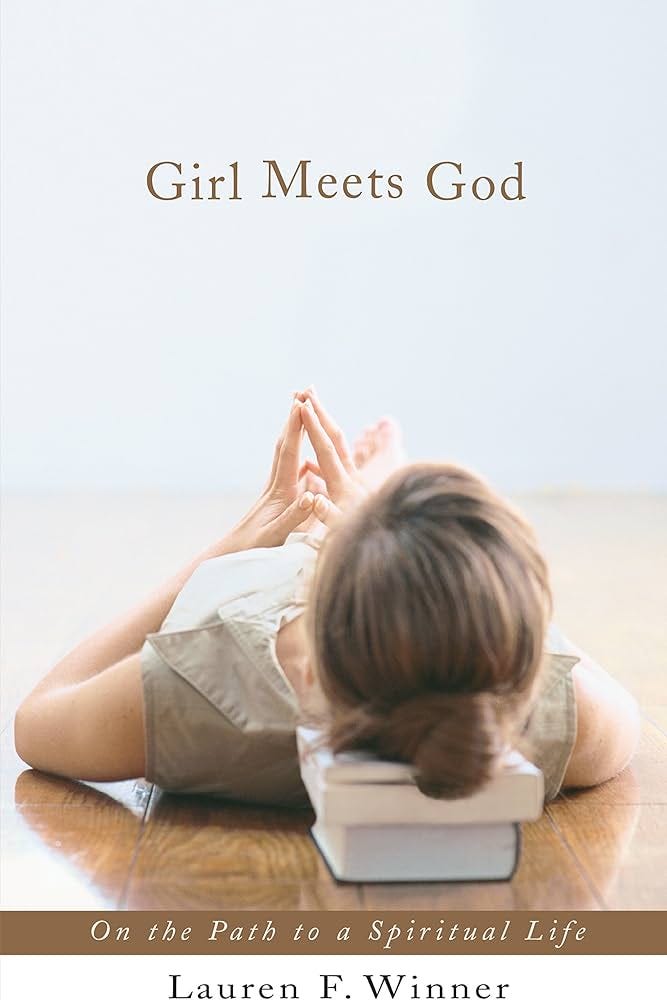When Insecurity Interferes with my Love of Reading
Yesterday, it was time to pick a new book to read.
Choosing a new book is almost a religious experience for me, something to be treated with reverence. I don’t want to grab something off the shelf in a hurry. I don’t want it to be dictated to me, as in, “I have to read this book now because of my book club,” or because its due date is coming soon, or because someone has shoved a book into my hands and demanded that I have to read it. I want to be alone, to listen to my inner voice, to run my fingers over spines and flip open to first pages until something inside me clicks and tells me this is, “the one.” At least for now.

Usually, I have some sort of guiding desire — I’m in the mood for a parenting memoir, or a science fiction, or a young adult novel. Yesterday, I wanted a spiritual memoir.
What I really wanted to read was Still: Notes on a Mid-Faith Crisis by Lauren F. Winner, but as a rule-follower I felt that I should start with her earlier book, Girl Meets God. So that’s the spine I cracked.
Still: Notes on a Mid-Faith Crisis is about how Winner made sense of her faith in the midst of major upheavals in her life — her mother’s death and the end of her marriage. Girl Meets God is from an earlier faith and identity crisis: her conversion to Christianity from Judaism.

As I began to read, I did a quick author check on Winner’s age when she published the book in 2002. She would have been in her mid-twenties. Which meant she’d written the book in her early twenties.
Which meant she was so much more accomplished as a writer than I was, both at that age, and now.
Here’s where the anxiety kicks in, strong enough that I consider abandoning the book altogether. Will this stomach-gnawing jealousy interfere with my whole reading experience? Will I be judging every perceived privilege and personal or writerly shortcoming as a way to make myself feel better? Will I be able to open myself to this story and the potential beauty and wisdom therein?
It’s in these moments that I forget that I, too, got my first book contract when I was in my late twenties, editing a book of essays by young adult Catholics. Talking to the publisher on the phone back then, I felt like I had finally “arrived” as a writer. I had been published in a handful of anthologies before then, but this was the first time my name would be on the cover. This was the proof I was really a writer.
But it was a small, independent press. It was years ago. It didn’t bring fame or fortune or further contracts. And it’s from a world I don’t strongly identify with anymore, now that I’ve mostly left Catholicism behind.
But even if I had achieved that holy grail all writers aspire to — a deal with one of the “big 5” publishing houses, realistically I know there would still be those who had achieved more, that success and attention ebbs and flows in this field. Dani Shapiro, one of the authors I most admire who has truly “made it” as far as I’m concerned, has a whole essay about this in her book, Still Writing: The Perils and Pleasures of a Creative Life.
If you were to sit a roomful of writers down and administer a truth serum, they would divulge a short list of other writers who they secretly envy, maybe even hate. Every book’s publication has, for its author, a shadow publication—a book displayed more prominently in bookstores, or better publicized, or more widely reviewed.
Shapiro is not proud of these feelings, admitting that she almost didn’t include the essay titled “Envy” in her book. But I’m glad she did, because it reminded me that there is no magical moment at which we will ever stop wanting more. The goal is to channel that energy into doing what’s important to you, not toward bitterness toward other writers.
Because other writers, with very rare exceptions, enrich our worlds and our lives, regardless of the path they took to get there.
So in response to Winner’s early publishing success, I could reassure myself with all my other accomplishments from my twenties and beyond, before the career wasteland that was my decision to stay home with my kids. (I realize that may seem like harsh language, but that is a reflection on how hard it is to balance meaningful work with caring for young children in our culture. I knew I didn’t have the right type of personality to be good at both full-time work and parenting small children, so I made a choice. I don’t regret my choice, but during that time when I was making so little progress toward my dreams as a writer, I had to frequently remind myself that I was experiencing another of my lifelong dreams, which was to be a mother.)
There’s a reason that comparison is referred to as the thief of joy. Exhibit A, the negativity that welled up during what is usually a joyous moment for me, the beginning of an exciting journey through the pages of a new book.
So here’s what I did to silence those voices and hold onto the joy.
I reminded myself that Lauren Winner was a real person, who had also happened to be brave enough to write about the deeply personal journey of her faith.
And I knew that if I met a woman in her early twenties today who was navigating a conversion from Judaism to Christianity, I would be very interested in going out to coffee with that person and hearing her story.
The experiences and insights to come within the pages of Girl Meets God never would have made it to me if Winner hadn’t had the early success that eluded me. And now I will have the opportunity to get to know her that I wouldn’t have had otherwise.
Her journey is her own. So is mine. I have read amazing books by writers in their teens. I have read amazing books by writers in their seventies. There is no expiration date on dreams or on our drive to share our stories. So now that all that is out of the way, I’m going to steep some tea, and sink into a good book.